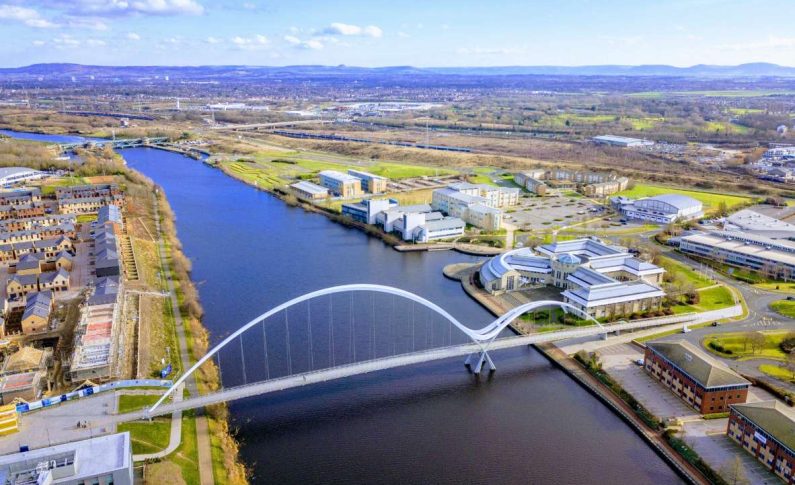Commercial conveyancing is a complex and vital aspect of the real estate landscape that involves the legal transfer of commercial properties from one entity to another. Unlike residential conveyancing, commercial transactions often entail additional complexities, negotiations, and legal considerations. In this comprehensive guide, we will explore the ins and outs of commercial conveyancing, shedding light on the key processes, legal intricacies, and essential considerations involved in buying or selling commercial real estate.
Understanding Commercial Conveyancing
Commercial properties encompass a wide range, including office buildings, retail spaces, industrial warehouses, and hospitality establishments. The distinct nature of these properties necessitates a specialized approach in the conveyancing process.
Differences from Residential Conveyancing
Complexity: Commercial conveyancing is generally more complex due to larger transaction values, intricate lease structures, and diverse property uses.
Negotiations: Negotiations in commercial transactions are often more extensive, involving not only the property price but also lease terms, business fixtures, and other commercial aspects.
Legal Framework: Commercial conveyancing operates within a different legal framework, involving various statutes, regulations, and contractual nuances specific to commercial real estate.
The Commercial Conveyancing Process
1. Pre-Contract Stage
Due Diligence: Buyers conduct due diligence, investigating the property’s title, planning permissions, environmental factors, and any potential legal issues.
Negotiations: Parties negotiate terms, including the purchase price, lease agreements, and any additional conditions.
2. Drafting Contracts
Solicitors draft contracts outlining the terms and conditions of the transaction, including property details, conditions of sale, and any specific commercial provisions.
3. Property Searches
Various searches, such as land searches, local authority searches, and environmental searches, are conducted to identify any potential issues that may affect the property or the transaction.
4. Financing and Funding
Buyers secure financing for the transaction, and mortgage lenders may conduct their own due diligence before providing funds.
5. Exchange of Contracts
Once both parties are satisfied, contracts are exchanged, and the transaction becomes legally binding. At this stage, a deposit is usually paid by the buyer.
6. Completion
On the agreed completion date, the buyer pays the remaining balance, and ownership of the commercial property is transferred. Keys are handed over, and the buyer takes possession.
7. Post-Completion Matters
Stamp Duty: Stamp Duty Land Tax (SDLT) or its equivalent is paid by the buyer following completion.
Land Registry Update: The Land Registry is updated to reflect the change in ownership, and relevant documents are filed.

Legal Considerations and Challenges
1. Leasehold and Freehold Differences
Leasehold Properties: Additional considerations include lease terms, tenant obligations, and rent reviews.
Freehold Properties: Ownership of the land and building, but still subject to planning and usage regulations.
2. Environmental Issues
Environmental searches are crucial to identify potential contamination or hazards associated with the property.
3. Planning Permissions and Zoning
Ensure the property complies with local planning regulations and zoning requirements.
4. Title Issues
Confirm that the seller has a clear and marketable title to the property, free from encumbrances.
5. Tax Implications
Buyers need to be aware of SDLT implications, which vary based on the property value and other factors.
6. Tenant Considerations
If the property is leased, consider the implications of lease assignments and the rights of existing tenants.
Tips for a Successful Commercial Conveyancing
1. Engage Experienced Professionals: Work with solicitors and conveyancers experienced in commercial conveyancing to navigate complexities effectively.
2. Thorough Due Diligence: Conduct thorough due diligence to identify potential risks, ensuring informed decision-making.
3. Clear Communication: Maintain clear communication between all parties involved, fostering transparency and cooperation.
4. Negotiate Favorable Terms: Negotiate terms that align with your business goals, ensuring favorable conditions for both parties.
5. Budget for Additional Costs: Anticipate and budget for additional costs such as legal fees, stamp duty, and potential property improvements.
Commercial conveyancing is a multifaceted process that requires a thorough understanding of legal, financial, and operational aspects. From due diligence and negotiations to drafting contracts and completing the transaction, the ins and outs of commercial conveyancing demand meticulous attention and expertise. Engaging experienced professionals such as Essendon & Suburbs Conveyancing Services, conducting comprehensive due diligence, and navigating potential challenges with foresight are crucial for a successful commercial conveyancing journey. By embracing a strategic and informed approach, businesses can navigate the complexities of commercial real estate transactions and secure properties that align with their objectives, ultimately contributing to long-term success in the dynamic world of commercial real estate.



